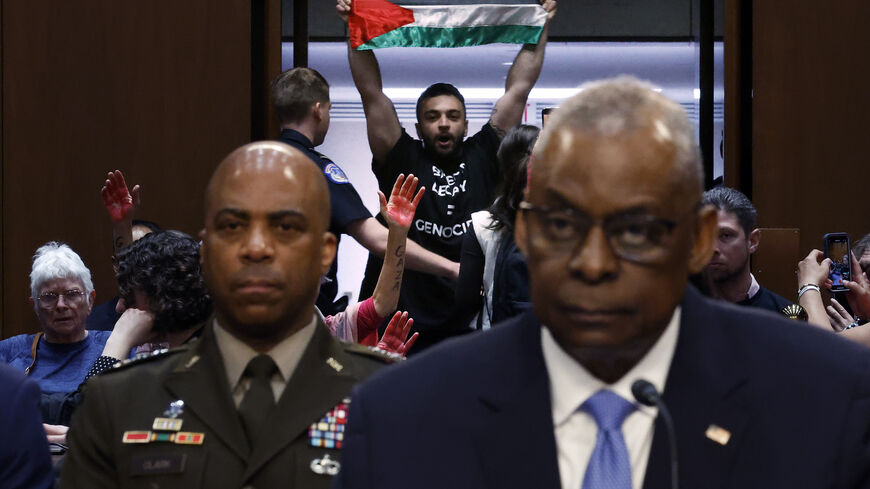The Israel-Palestine conflict has long been one of the most contentious and deeply entrenched geopolitical disputes in modern history. With recent accusations of genocide leveled against Israel by some international officials and lawmakers, the debate surrounding the conflict has intensified, prompting scrutiny of U.S. foreign policy and diplomatic efforts.
Defense Secretary Lloyd Austin’s recent remarks rebuffing allegations of genocide against Palestinians in Gaza underscore the complexity and sensitivity of the issue. While acknowledging the severity of the conflict, Austin emphasized the lack of evidence to support claims of genocide, a stance that reflects the official position of the Biden administration.
The term “genocide” carries significant legal and moral implications, defined by the United Nations Genocide Convention as acts committed with intent to destroy, in whole or in part, a national, ethnic, racial, or religious group. Accusations of genocide in the context of the Israel-Palestine conflict raise profound questions about the nature of violence and human rights abuses in the region.
Critics of Israel’s actions argue that the ongoing military operations in Gaza, characterized by airstrikes, ground incursions, and blockades, amount to systematic violence and oppression targeting the Palestinian population. They point to civilian casualties, displacement, and destruction of infrastructure as evidence of Israel’s disproportionate use of force and disregard for Palestinian lives.
Proponents of Israel’s actions reject accusations of genocide, emphasizing the country’s right to self-defense against threats posed by militant groups such as Hamas. They argue that Israel’s military operations are aimed at neutralizing security threats and protecting its citizens from rocket attacks and terrorist activities originating from Gaza.
The Biden administration’s response to the conflict has been closely scrutinized, with calls for a reassessment of U.S. support for Israel and a more proactive approach to addressing the root causes of the violence. While expressing concern for civilian casualties and advocating for de-escalation, the administration has reaffirmed its commitment to Israel’s security and right to defend itself.
Sen. Elizabeth Warren’s assertion that international officials could determine the conflict in Gaza as constituting genocide reflects growing pressure on the U.S. government to reevaluate its stance on the issue. The classification of the violence as genocide would have significant implications for U.S. policy and could prompt calls for sanctions or other punitive measures against Israel.
In navigating the complexities of the Israel-Palestine conflict, it is imperative for the U.S. to uphold principles of human rights, international law, and diplomatic engagement. While acknowledging Israel’s legitimate security concerns, the U.S. must also advocate for the protection of Palestinian rights and pursue efforts to achieve a lasting and equitable resolution to the conflict.
Ultimately, finding a path to peace and stability in the region requires a commitment to dialogue, negotiation, and mutual respect. By engaging with all stakeholders and supporting diplomatic initiatives aimed at addressing the underlying grievances of both Israelis and Palestinians, the U.S. can play a constructive role in advancing a peaceful resolution to one of the world’s most enduring conflicts.
